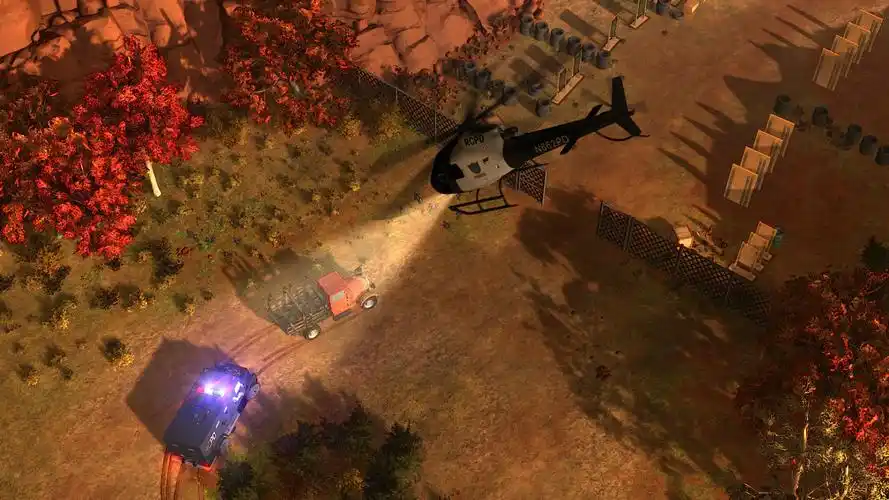How Deep Game News Influences In-Game Decisions
The gaming industry has evolved into a multi-billion dollar global phenomenon, with millions of players engaging in complex virtual worlds daily. An often overlooked but critical aspect of modern gaming culture is the consumption of game-related news. From patch notes and developer blogs to esports coverage and meta analyses, deep game news significantly influences how players make decisions within games. This article explores the various ways in which in-depth gaming journalism and news coverage shape player behavior, strategy, and overall gaming experience.
Understanding Deep Game News
Deep game news refers to detailed, analytical, and often specialized content that goes beyond basic announcements or reviews. It includes comprehensive patch breakdowns, strategy guides, meta reports, developer interviews, esports match analyses, and data-driven insights into game mechanics. This type of content is typically consumed by dedicated players who seek to optimize their performance, stay competitive, or deeply understand the games they play.

Sources for deep game news range from official developer communications and dedicated gaming websites to community-driven platforms like Reddit, Discord servers, and content creators on YouTube and Twitch. The depth and quality of this information can profoundly affect how players approach their gaming sessions.
Informing Strategic Choices
One of the most direct ways deep game news influences in-game decisions is by informing strategic choices. For example, in competitive games like League of Legends, Counter-Strike 2, or Dota 2, patch notes are not merely read but studied. When developers adjust character abilities, item statistics, or map layouts, competitive players immediately begin analyzing how these changes will affect the meta—the prevailing strategies and tactics considered most effective.
High-level players often rely on content creators who specialize in breaking down patch notes. These experts calculate damage output changes, cooldown reductions, and other numerical adjustments to determine which characters or strategies become more or less viable. As a result, players adjust their pick/ban phases, item builds, and overall gameplay strategies based on this digested information. Without access to this deep analysis, players would need to invest significant time testing changes themselves, putting them at a competitive disadvantage.
Similarly, in narrative-driven games, news about upcoming DLCs, expansions, or story developments can influence player decisions. For instance, knowing that a particular character might play a significant role in future content might encourage players to invest more time in leveling them up or completing their side quests.
Economic Decisions Within Games
Many modern games feature complex economies, both in-game and real-world. Deep game news plays a crucial role in shaping how players manage virtual resources. In massively multiplayer online games (MMOs) like World of Warcraft or Final Fantasy XIV, market fluctuations often follow news cycles. Announcements about new crafting recipes, changes to resource nodes, or adjustments to raid loot tables can cause prices on auction houses to spike or crash.
Informed players who closely follow developer streams or forum updates can capitalize on this information. They might stockpile resources expected to become valuable or sell assets before a predicted market crash. This speculative behavior, driven by news consumption, mirrors real-world financial markets and adds a layer of economic strategy to the gaming experience.
Furthermore, games with real-money trading elements, such as Counter-Strike 2 with its skin market, are heavily influenced by news. A weapon skin's value can skyrocket if it becomes associated with a famous esports moment or if its drop rate is reduced in an update. Players who stay updated can make profitable decisions, while those unaware might miss opportunities or incur losses.
Learning and Skill Development
Deep game news is an educational resource for players looking to improve their skills. Strategy guides, tier lists, and tutorial videos created by top players provide insights that would take hundreds of hours to discover independently. For example, in fighting games like Street Fighter 6 or Tekken 8, frame data—the precise timing of moves—is essential for high-level play. Most players rely on community resources that compile and analyze this data after each patch, as manually testing every move is impractical.
This knowledge directly translates to in-game decisions. A player might learn from a video guide that a specific opponent's move is unsafe on block, meaning they can punish it with a guaranteed counterattack. Armed with this information, they can adjust their gameplay to look for that opportunity, a decision they might not have made without external news and analysis.
Psychological and Social Influences
Beyond tangible strategies, deep game news also affects players psychologically. Knowing that a character or strategy is considered "top-tier" by the community can create a bandwagon effect, where players gravitate toward perceived strengths even if their personal skill doesn't align. Conversely, news about underpowered elements might discourage players from experimenting with them, potentially stifling diversity and innovation.
Social dynamics are also impacted. In team-based games, news about the meta can lead to conflicts if players have differing opinions on the best strategies. A player who insists on a pick deemed non-meta by teammates might face criticism, even if they perform well. This highlights how consensus formed through game news can enforce conformity and sometimes toxicity.
Moreover, esports coverage influences how casual players emulate professionals. When a famous team successfully employs a novel strategy in a tournament, it often becomes popular in public matches overnight. Players watch highlight reels and analysis videos to understand and replicate these tactics, directly transferring professional decisions into their own games.
The Feedback Loop with Developers
Interestingly, deep game news creates a feedback loop between players and developers. Developers monitor community reactions to patches and announcements through news sites, forums, and social media. This feedback informs future adjustments, which are then disseminated through news, again influencing player decisions. For instance, if a nerf (weakening) to a character proves overwhelmingly negative in community discourse, developers might issue a quick follow-up patch, and players will adjust their strategies once more.
This dynamic means that player decisions are not just based on the current state of the game but on anticipated future states. Players might avoid investing time in a character rumored to be nerfed soon or practice a strategy expected to become stronger in the next update.
Conclusion
In conclusion, deep game news is far more than mere entertainment; it is an integral part of the ecosystem that shapes how players interact with games. From strategic and economic choices to skill development and psychological influences, the consumption of detailed gaming content has a profound and multifaceted impact on in-game decisions. As the industry continues to grow, the symbiosis between game news and player behavior will likely become even more intricate, highlighting the importance of critical engagement with gaming journalism. Players who mindfully navigate this flow of information can enhance their performance, enjoyment, and overall experience in the virtual worlds they inhabit.


















